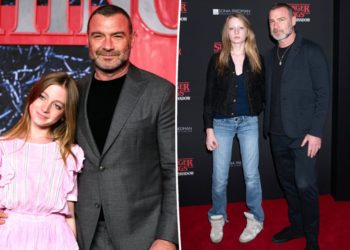In the first minutes of “Burning,” a 2018 movie by the South Korean filmmaker Lee Chang-dong, the voice of President Trump rings out from a TV newscast, setting the stage for the ensuing story of a young farmer’s son whose life is determined more by a political order being constructed far out of his sight than by the personal choices in front of him. “Burning” perfectly dramatizes the bewildering situation of young people living like interlopers in a world that’s handed over its keys to an elusive class of financial elites. Jong-su knows he is being shut out, but how and by whom he cannot fully answer.
Before Lee Chang-dong became an internationally celebrated director of unflinching, complex films that examine the injustices embedded in Korean society, he explored these same themes in fiction. “Snowy Day and Other Stories,” his first book to be translated into English, by Heinz Insu Fenkl and Yoosup Chang, collects seven stories from his early career. The vivid, realist stories depict 1980s South Korea during the oppressive military dictatorship of President Chun Doo-hwan; over each hangs the shadow of the Gwangju massacre, in which hundreds or more protesting Chun’s power grab were brutally killed.
In the Korea of these pages, threats to youthful idealism and ambition — the military, police and other institutional enforcers of the political regime — are unambiguous and in plain sight. A generation later, the world has become less straightforward. Yet these stories, in which class divisions form impassable rifts and submission to the status quo comes at great psychic cost, have much to say about our contemporary reality.
In Lee’s first published story, “War Trophy” (1983), a man named Bonsu witnesses the slow, painful death of Jangsu, an old friend whose future was decided for him in a single moment in college, when his one-man demonstration for freedom of expression resulted in a swift arrest. Jangsu spends his 20s in prison, while Bonsu goes on to military service and respectable work as a schoolteacher. When another college friend who has abandoned her sympathies to the cause for a marriage to her wealthy American boss asks if Bonsu is “satisfied” with his life now, he ruefully replies that he is: “Our occupation survives on satisfaction, right?” The bargain they’ve both made to endure the regime ensures their complicity with it.
Despite their sometimes wistful tone, Lee’s stories aren’t about making the wrong choice, but about being denied any meaningful choice at all. “There’s a Lot of Shit in Nokcheon” reunites two half brothers who are nothing alike: Junshik is a potbellied, 30-something striver living in a new apartment in an active construction site that has not only displaced the area’s former residents but also left its workers without plumbing — hence the stinking piles of human waste. Minu, his handsome younger brother, has been expelled from an elite university for activism, and is now on the run from the police. When Junshik takes him in, Minu’s principled ideals rub off on the older brother and his wife, leading them to question whether their steady, boring life — their long-awaited reward for conforming to the system — “was just a stage illusion, painted over garbage.”
In an author’s note, Lee prefaces that the collection hews closely to his own personal experiences from that time, “with very little fictionalizing.” (“The Leper,” about a man who spends his life in futile commitment to the revolution at the expense of his family, is based on Lee’s own leftist father; “Snowy Day” recalls a night during Lee’s own military service when it snowed so heavily that the only thing he could see to guard was barbed wire.) Like “Burning,” these stories are tragic, but not hopeless, both about and for a younger generation of social idealists. Resistance has meaning, they seem to say, even when it comes at a high cost. Submission is an even worse death.
The post A South Korean Filmmaker’s Early Fiction Holds a Mirror to His Past appeared first on New York Times.




